Love, the enigmatic force that has captivated poets, philosophers, and dreamers for centuries, is a multifaceted emotion. This complete guide delves into the stages of falling in love, offering insights into the mysteries that have intrigued and bewildered us through the ages. For instance, can falling in love be helped? How do people fall in love? And what does falling in love feel like?
As I reflect on my own experiences to help you find the answers to these intriguing questions, I’m reminded of a serendipitous encounter. One particular chapter of my life stands out — a time when I found myself navigating the labyrinth that was falling in love. This journey was not a linear path but a kaleidoscope of emotions and discoveries, each stage leaving an indelible mark on my soul.
It was during the first stage of falling in love, the honeymoon phase, that I experienced the magnetic pull that drew me closer to someone in a way I couldn’t quite articulate. Little did I know that this was just the prelude to what was next. Join me as I unravel the 10 stages of falling in love.
What Are The Signs Of Falling In Love?
Table of Contents
How does love start? Or how do people fall in love? The signs of falling in love are like constellations in the night sky — subtle yet profound, weaving a tapestry of emotions that can leave one exhilarated and vulnerable. As we explore the telltale signs that love is blossoming, it’s essential to recognize that these signals often transcend cultural boundaries, embodying a universal language stemming from the feeling of love that transcends words. Whether you’re in the early stages of a budding romance or finding yourself captivated by someone you’ve known for years, these signs serve as celestial markers on the map of the heart’s journey:
- Butterflies in the stomach: The feeling of falling in love is often associated with a fluttering sensation, akin to butterflies taking flight within. This is a classic indicator of the early stages of falling in love. The nervous excitement and anticipation before seeing or interacting with the object of affection are unmistakable signs
- Constant thoughts: What does falling in love feel like? Here is an unmistakable indicator that you’re falling in love: the person occupies your thoughts persistently, whether day or night, and you can’t stop thinking about them or you constantly worry about them. It’s typical of the earlier stages when love takes residence in your heart
- Heightened sensitivity: Love has a way of amplifying our emotional responses. If you find yourself more attuned to the feelings and needs of the person you’re falling for, as well as experiencing a heightened sensitivity to their joys and sorrows, it’s a testament to the deepening connection
- The magnetic pull: A magnetic attraction that draws you physically and emotionally toward the person is another unmistakable sign. It goes beyond mere attraction to their physical appearance; it’s an inexplicable force that pulls you closer, fostering a sense of closeness and intimacy. This is one of the most decisive phases of falling in love
- Prioritizing their happiness: As love takes root, your priorities shift, and the happiness and well-being of your significant other become paramount. Once inconceivable sacrifices may now seem like natural expressions of your deepening affection
Research shows that love psychology is not that different from the euphoric feeling caused by drugs. So, if you’re wondering, “Can falling in love be helped?”, more often than not, the answer is no. Fighting the feeling of falling in love is an uphill battle for most. It says, “With their new techniques for revealing our biochemical and neurophysiological selves, a group of the contemporary Darwinians have had no trouble taking the mystery out of romantic love.
“They tell us that when we fall in love we are falling into a stream of naturally occurring amphetamines running through the emotional centers of our very own brains. That is why we feel exhilarated, manic, powerful, creative, suddenly grown up if we are young, and suddenly rejuvenated if we are older. The ecstasy of love is located in our nerves; we get high; we speed. Eventually, our nerves being what they are, their endings become amphetamine immune or exhausted, and the delirium of our free fall abates. We come down to Earth.”
Related Reading: What Does Love Feel Like – 21 Things To Describe The Feeling Of Love
These signs are merely the beginning of a profound journey. As we delve further, we’ll explore the different stages of love.
A Rundown On The Stages Of Falling In Love
Embarking on the journey of falling in love is akin to setting sail on an emotional odyssey, where we encounter a series of distinct stages that shape the landscape of our deepest connections. Each stage unfolds with its own set of emotions, challenges, and revelations, guiding us through the intricate play of romance. In this comprehensive rundown, we’ll navigate the different stages of love that sum up the meaning of falling in love, offering a glimpse into the profound and transformative journey of the heart.
1. How does love start? With attraction
This is the first of the many steps of falling in love. The initial spark that ignites the flames of love, attraction is the magnetic force that draws two individuals together. This first stage of love is characterized by an inexplicable pull, largely due to their physical appearance, but accompanied by a recognition of something special that transcends the different hormones at play. In this study, researchers “have measured how a part of the brain is responsible for putting our loved one on a pedestal in that first flush of romance.”
2. Infatuation
Infatuation marks the next stage where emotions intensify with fiery passion, and the new partner becomes the focal point of thoughts and desires. It’s a time of heightened passion, where the world seems brighter and more vibrant in the presence of the beloved, and levels of attraction soar higher than in the previous stage. This is, arguably, the most glorious of the phases of falling in love.
Related Reading: A Rundown On The 5 Stages Of A New Relationship
3. Discovery
As the new relationship deepens, the third stage – the discovery stage – unfolds, revealing layers of each other’s personalities, values, and aspirations. This period is marked by a sense of curiosity and a growing understanding of one another. Partners experience feelings of empathy toward one another as they get to know each other. And the experience of being in love undergoes a shift, from a feeling of euphoria to a a sense of feeling grounded.
4. Intimacy starts to form in the early stages of liking someone
Intimacy is a gradual process of emotional and physical closeness, fostering a deep connection and trust between partners. More than just the effect on testosterone and the heightened sex drive, it involves vulnerability, open communication, and the sharing of innermost thoughts and feelings — the stuff of fairy tales. This where the the feeling of falling in love takes on a whole different meaning.
Related Reading: 8 Types Of Intimacy In A Relationship- And How To Work On Them
5. Trust-building is the next stage of being in love
Trust is the bedrock of any healthy relationship. Of the different steps of falling in love, this one is particularly significant because it involves navigating challenges together, building a foundation of reliability and trust in the relationship, and establishing faith in each other’s commitment. Love in relationships means very little without trust and many people tend to overlook this important aspect.
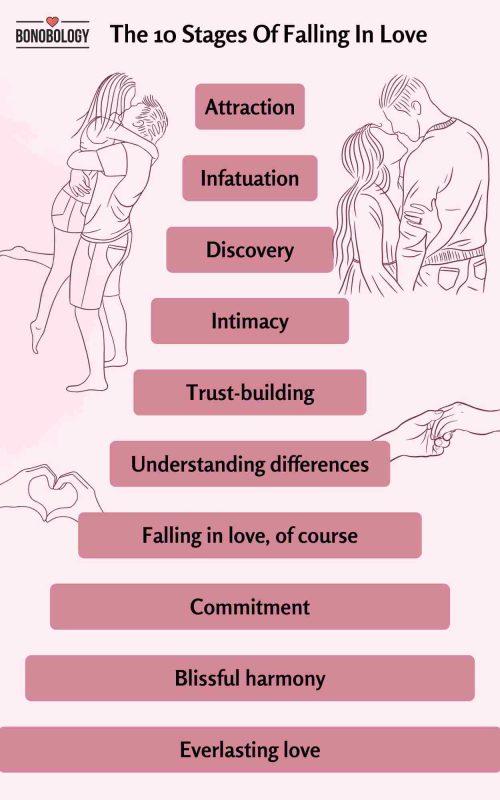
6. Understanding differences
No relationship is without differences, and this next stage involves acknowledging and embracing the uniqueness of each partner. It’s about navigating conflicts with empathy and fostering growth through compromise. This is also the stage that couples experience after the honeymoon phase. Spending time together is required at this point to nourish the relationship.
Related Reading: The First Fight In A Relationship – What To Expect?
7. Falling in love, of course
This love stage is the tipping point where emotions transition from infatuation to a profound, enduring love. It’s characterized by a deep emotional connection, a sense of security, and a commitment to the well-being of the relationship. This is where lovers also become best friends and, at this point, fighting the feeling of falling in love is a fool’s errand. This is also where all doubts and dilemmas disappear. You’re no longer asking, “Am i falling in love?” You know the answer with certainity.
8. Commitment
Commitment solidifies the bond, signifying a conscious decision to invest in the relationship for the long term. Love in relationships involves facing challenges together, supporting each other’s dreams, and weathering the storms that arise. Unlike the early stages, this is one of the phases of falling in love that takes effort to navigate and ensures that both partners are on the same page.
Related Reading: 7 Fundamentals Of Commitment In A Marriage
9. Blissful harmony
In this stage of romantic relationships, couples experience a sense of blissful harmony, where they navigate life as a united front. This is when being in love is marked by shared goals, mutual respect, joint self-care, and a deep appreciation for the partnership. When people fall genuinely in love, this stage is sure to arrive.
10. Everlasting love in relationships is the final stage, ideally
The final stage in the steps to falling in love embodies a lifelong journey together. Everlasting love is characterized by enduring companionship, unwavering support, and a connection that stands the test of time. Partners feel connected on a much deeper level than before as they build a future together.
One Reddit user had this to say about his experience with the different love stages: “Signals are different for any guy. But when I’m in love, nothing comes before her, and there is nobody else besides her. She is all I want, and all I need. I feel that in my body like a warmth. That regardless of the moment: whether it be during sex, watching a movie, eating, sleeping, or even just on my lunch break & I neeeeeeed to go back to work … I don’t want them to end. I just want to stay there feeling/reciprocating that love. Literally nothing else matters.”
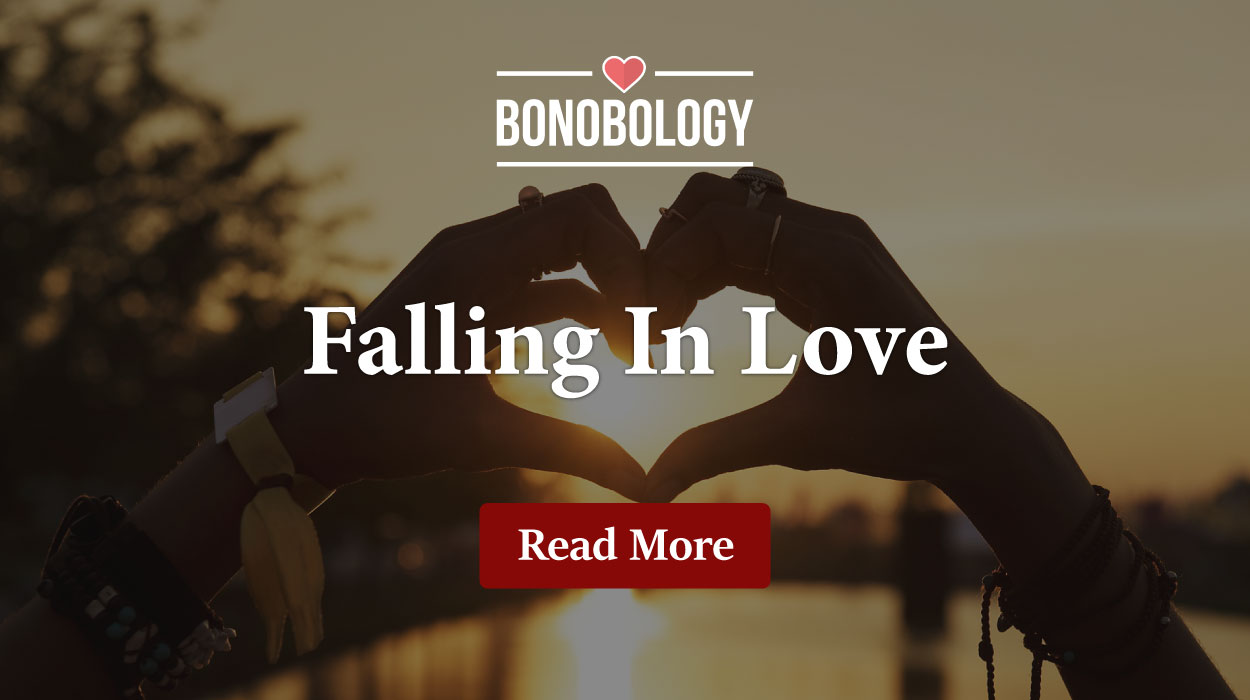
As we unravel the stages of falling in love, a question lingers — how do people fall in love, and is there a scientific explanation for the timelines that govern matters of the heart? Let’s delve into the realm of scientific inquiry to understand the timeline of the steps of falling in love.
How Long Does It Take To Fall In Love Scientifically?
What does falling in love feel like? Can falling in love be helped? How long does it take to develop feelings for someone? What is the average time to fall in love? The scientific exploration of the process and timeline for falling in love is as intricate as the emotion itself, influenced by a myriad of factors ranging from individual differences to external circumstances. Researchers and psychologists have sought to unravel the process of falling in love, attempting to quantify the duration it takes for individuals to traverse the stages of attraction, attachment, and profound connection.
Related Reading: 23 Hidden Signs A Man Is Falling In Love With You
However, it’s essential to recognize that the feeling of love, being a deeply subjective and personal experience, doesn’t adhere to a rigid timetable. How long it takes to fall in love would depend on:
- Individual variability: Scientific studies emphasize that the pace at which individuals fall in love is quite varied. Factors such as personality, past experiences, levels of attraction, and attachment styles contribute to the unique timeline of each person’s journey into love. While one person may spend months wrestling with the question, “Am I falling in love?”, another may embrace their feelings more quickly or even believe in the concept of love at first sight
- Cultural and societal influences: Different cultures may have varying expectations regarding the pace and progression of falling in love in romantic relationships. A cross-cultural study shows that American young adults were most romantic, followed by Turkish participants. Indian participants had the lowest romanticism score
- Chemical changes in the brain: Neurotransmitters and hormones, such as oxytocin and dopamine, are implicated in the experience of love. These chemical changes occur at different rates for different people, contributing to the diverse timelines observed in the scientific study of the feeling of falling in love
- Attachment styles: Psychological attachment styles, such as anxious, avoidant, or secure, impact how individuals approach and navigate romantic relationships. These styles can influence the speed at which someone becomes emotionally attached or experiences love. People who feel insecure a lot have a complicated relationship with love
- Experiences and trauma: Past experiences, trauma, and mental health can significantly affect the pace at which individuals open themselves up to romance. Healing from past wounds may expedite or delay the process of falling in love. One study found that people “who had experienced the most trauma were the least likely to express romantic ideals.”
According to pop love psychology, women tend to fall in love faster than men. However, researchers found the opposite to be true: “A widely held belief exists that women are more romantic and tend to fall in love faster than men. Responses from 172 college students indicated that although both men and women believe that women will fall in love and say “I love you” first in a relationship, men reported falling in love earlier and expressing it earlier than women reported.
Related Reading: What Is Romance To A Man – 13 Things Men Find Incredibly Romantic
“Analyses also showed no sex differences in attitudinal responses to items about love and romance. These results indicate that women may not be the greater “fools for love” that society assumes and are consistent with the notion that a pragmatic and cautious view of love has adaptive significance for women.”
In conclusion, the scientific exploration of love’s timeline underscores its complexity and subjectivity. Love is an evolving experience, defying the constraints of a rigid schedule — It will take as much time as it needs to. The scientific lens offers valuable insights into the unchartered territories of the heart, yet the true essence of falling in love remains a deeply personal and beautifully unpredictable journey.
Key Pointers
- Falling in love is a near-universal experience highlighted by butterflies in the stomach, heightened sensitivity, and magnetic attraction
- The different stages of falling in love, from initial attraction to everlasting love, may vary from person to person
- The time it takes to fall in love also varies among people, ranging from a few months to several years
- It’s dependent on cultural differences, social expectations, mental health status, and more
Through the lens of science and the canvas of personal experiences, we find that the heart’s journey is both universal and deeply individual. In the enigmatic dance of attraction, infatuation, and commitment, we discover the beauty lies not only in the destination but in every step along the way. In celebrating the complexities, mysteries and wonder of love, we embrace the timeless truth that in matters of the heart, the journey is as profound as the destination itself.
125 Questions To Deepen Relationship And Really Connect With Your Partner
Are You Falling In Love With Your Best Friend? Here’s How You Know
Your contribution does not constitute a charitable donation. It will allow Bonobology to continue bringing you new and up-to-date information in our pursuit of helping anyone in the world to learn how to do anything.

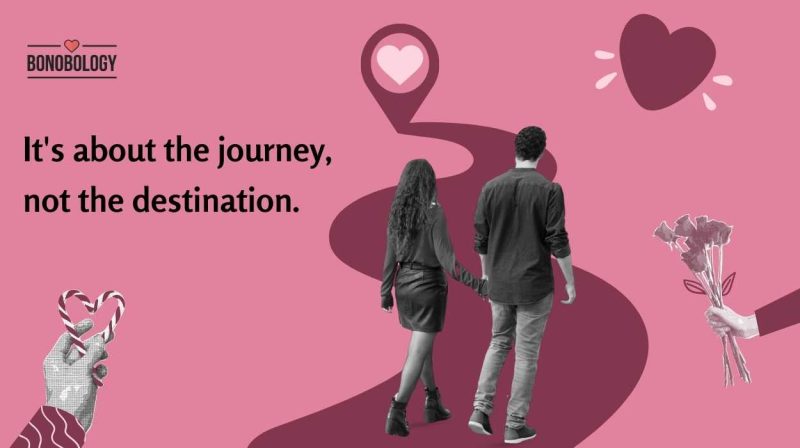

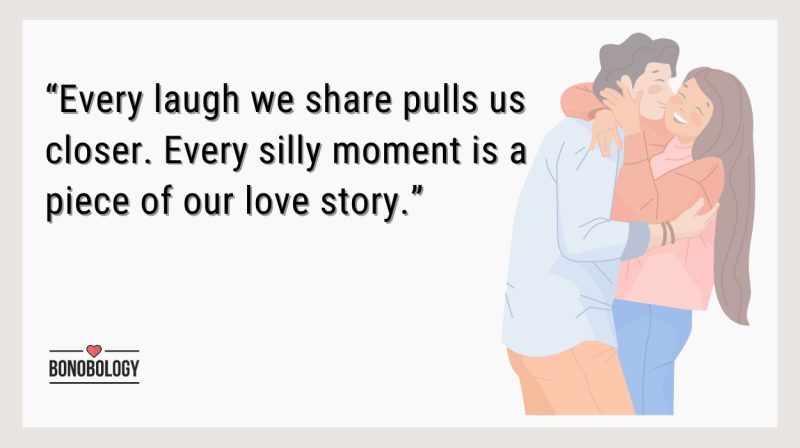
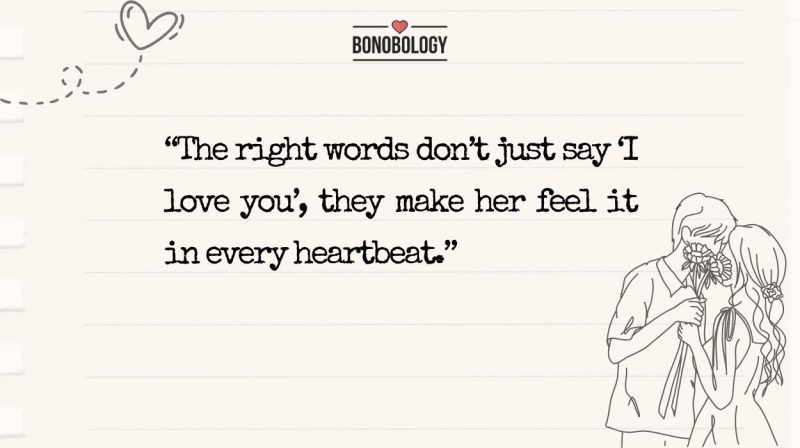

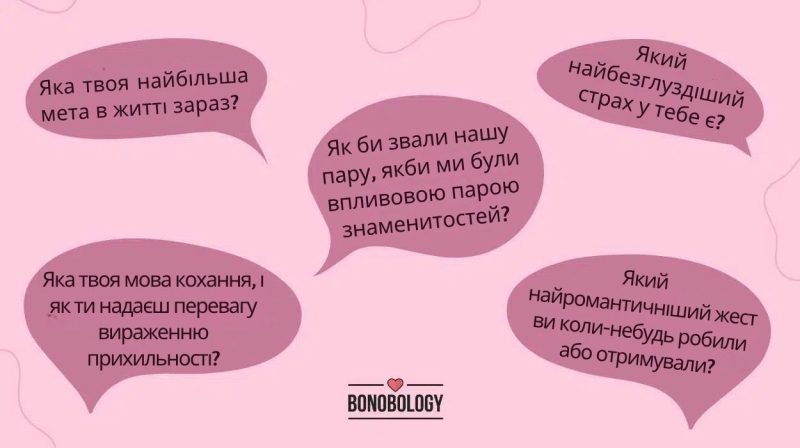












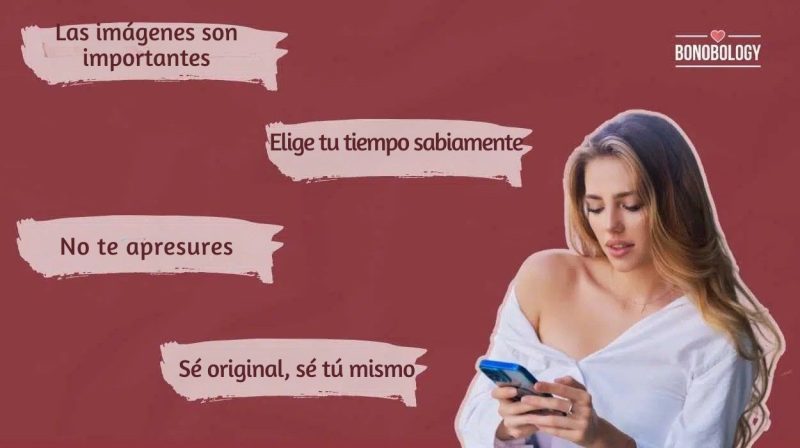

Featured
130 Beautiful Things to Say About Your Wife
101 Silly Questions To Ask Your Partner For Fun, Laughter, And Bonding
200 Heart Touching Love Messages For Her
50 вопросов с подвохом, которые стоит задать своему парню
250 випадкових запитань, які можна задати своєму хлопцеві
Kız Arkadaşınızın Bayılacağı 170 Şirin İsim
21 sinais de que ele gosta de fazer amor com você
101 Όμορφα κομπλιμέντα για γυναίκες για να λιώσουν τις καρδιές τους
140+ χαριτωμένα ψευδώνυμα για να καλέσετε τον φίλο σας
35 cartas de amor para él que lo harán llorar
35 lettres d’amour pour lui qui le feront pleurer
Uzmanlar Tarafından Desteklenen Erkek Vücut Dili Çekiciliğinin 20 İşareti
25 lettres d’amour profondément émouvantes pour elle qui la feront pleurer
35 lettere d’amore per lui che lo faranno piangere
10 Mutlaka İzlenmesi Gereken Genç Erkek Yaşlı Kadın İlişki Filmleri
25 lettere d’amore profondamente emozionanti per lei che la faranno piangere
45 сексуальних, брудних текстових повідомлень для вашого хлопця
45 Σέξι, Βρώμικα Μηνύματα για τον Φίλο σου
45 mensajes de texto sensuales y atrevidos para tu novio
Erkek Arkadaşınız İçin 45 Seksi, Müstehcen Mesaj